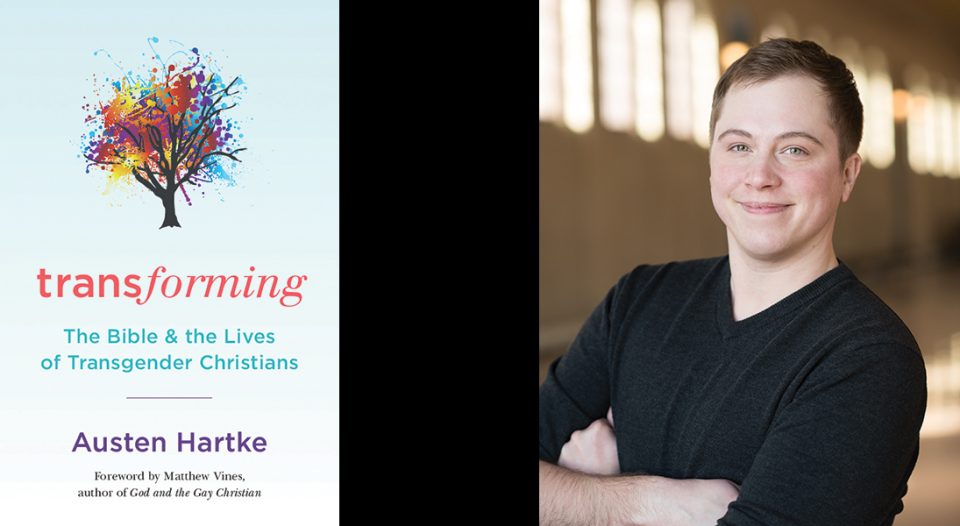Austen Hartke is the creator of the YouTube series Transgender and Christian, which seeks to understand and interpret Scripture related to gender identity and transgender people. His online work became the basis for his new book, Transforming: The Bible and the Lives of Transgender Christians (Westminster John Knox Press, 2018), a collection of biblical and modern narratives from gender-nonconforming people of faith.
Living Lutheran spoke with Hartke, a graduate of Luther Seminary, St. Paul, Minn., and winner of the school’s 2014 John Milton Prize in Old Testament Writing, about his work, his passion for youth ministry, and his hopes for expanding resources for trans people.
Living Lutheran: How did you decide to write Transforming?
Hartke: When I was coming out, I couldn’t find resources that addressed “clobber passages” used against trans folks. The only fairly easy-to-read book about trans theology was Trans-Gendered by Justin Tanis—and it was out of print. There was a vacuum as far as Scripture and exegesis. After I started Transgender and Christian, the question was: How can I dig deeper into these topics in an accessible written form?
Your book weaves together the stories of trans peoples’ experiences and also the stories of Scripture. How did that format come about?
I wanted gender-nonconforming and gender-diverse folks to read Scripture with a sense of representation, to think, “That person looks like me!” I also wanted trans people to say, “Not only are there people like me in the Bible, but also people like me living right now, as trans Christians, fully thriving.” I wove these into a single narrative to show how all our stories have a similar current running through them, to say, “You are connected; you’re not alone.”
So much of the book I could not have done without the trans community. The people I interviewed were so free with their own stories; I wanted to give something back. So half of all author royalties will go to the Trans Justice Funding Project, which supports grass-roots efforts for trans justice.
You were baptized into the Lutheran church as an adult. Is there something specific in the Lutheran tradition that informs your work?
The main piece of Lutheran theology that informed my work is the use of both/and. When you talk about Jesus as both fully God and fully human, it breaks apart the idea of a binary—somehow Jesus is 200 percent. When you’re talking about Luther’s both/and of saint and sinner, it erases the line between those two; the paradox is that we are fully each.
In your work, you deal with a lot of vitriol and condemnation. How do you remind yourself you are a beloved child of God?
The best thing that I can do is to surround myself with a community of people who do support what I do. Before I came out, I couldn’t explain myself or introduce myself in a real way that allowed for connection. When I began to feel confident about myself and who I am, suddenly connection was a lot easier.
What’s your dream reaction to the book?
I want this book to be well-known enough that it’s an accessible resource. I want someone to just be able to find it on a shelf in a bookstore. I want teen trans kids who are just coming out to know there’s a resource to go to, or at least a place to start. That’s what I hope for most.
What’s next for you?
[I recently led] a retreat specifically for youth leaders and ministry professionals about how to be more LGBT-inclusive. I’d love to expand that work out into other states. I’m currently finishing a new Scripture commentary on both “clobber verses” and inclusive texts for ReconcilingWorks, which should be available as synod assemblies begin this spring. And this April, I’m co-leading the first Gay Christian Network youth retreat in Philadelphia.
A lot of churches are Reconciling in Christ or say “All are welcome,” but they might not know how to back that up when a trans person walks through the door. I don’t know everything that’s coming next; I just want to do everything I can to educate people, especially youth leaders and ministers, to help back up that welcome to the LGBT community.




